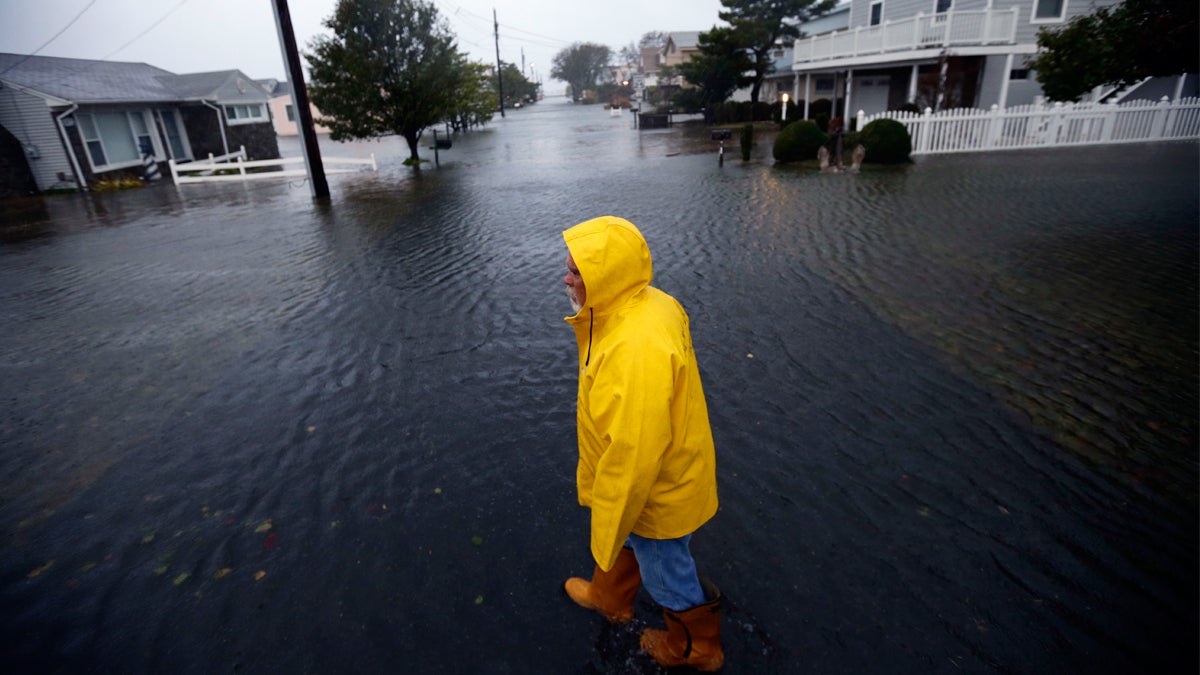Addressing trauma one year after Superstorm Sandy
Listen
Al Daisey walks in the flood water in front of his home as Hurricane Sandy bears down on the East Coast, Monday, Oct. 29, 2012, in Fenwick Island, Del. (Alex Brandon/AP Photo, file)
The Jersey shore is preparing for the one-year anniversary of Superstorm Sandy, but many who are still rebuilding their lives are bracing for the added emotional toll of revisiting those traumatic events.
Faith Liguori, a crisis counselor, was among the thousands of people displaced after last year’s devastating storm. Her mounting frustrations and struggles in putting her life back together, navigating a maze of insurance and government agencies, were featured in this popular video.
She described the process of rebuilding immediately after the storm as “madness” and having no logic.
That was more than six months ago, so what about now?
“I’m still feeling disheartened,” Ligouri said.
Her primary focus now is helping low-income people with mental illnesses find housing, but she and her neighbors are still working to piece their own lives together. And with that can come more stress, sadness, anger and even guilt.
“Certainly for people not able to reestablish their living situations, there’s a loss of hope that makes [the anniversary] even more difficult,” said Carolyn Beauchamp, director of the Mental Health Association in New Jersey. “In the beginning, they kept thinking they’d get back to normal.”
Some may experience triggers as the disaster takes the spotlight again.
“All of a sudden, we’re noticing some children are more frightened when it rains because they’re worried about it happening again,” Beauchamp said. “People are more easily upset.”
Beauchamp says while she probably can’t fix people’s housing or other financial problems, she hopes newly added mental health resources in the region will provide valuable strength and support. Her group is putting more counselors in communities, starting support groups and launching a mental health first aid training program in Atlantic, Ocean and Monmouth counties.
Ligouri has also been meeting with leaders to address the unfolding emotional challenges. She says what’s helped her personally is talking with others and sharing stories.
“What people need to understand is that [anger and sadness] is really a normal response to an extraordinary event,” said Ligouri.
And while the stress isn’t gone, she’s hopeful it will fade over time.
WHYY is your source for fact-based, in-depth journalism and information. As a nonprofit organization, we rely on financial support from readers like you. Please give today.




